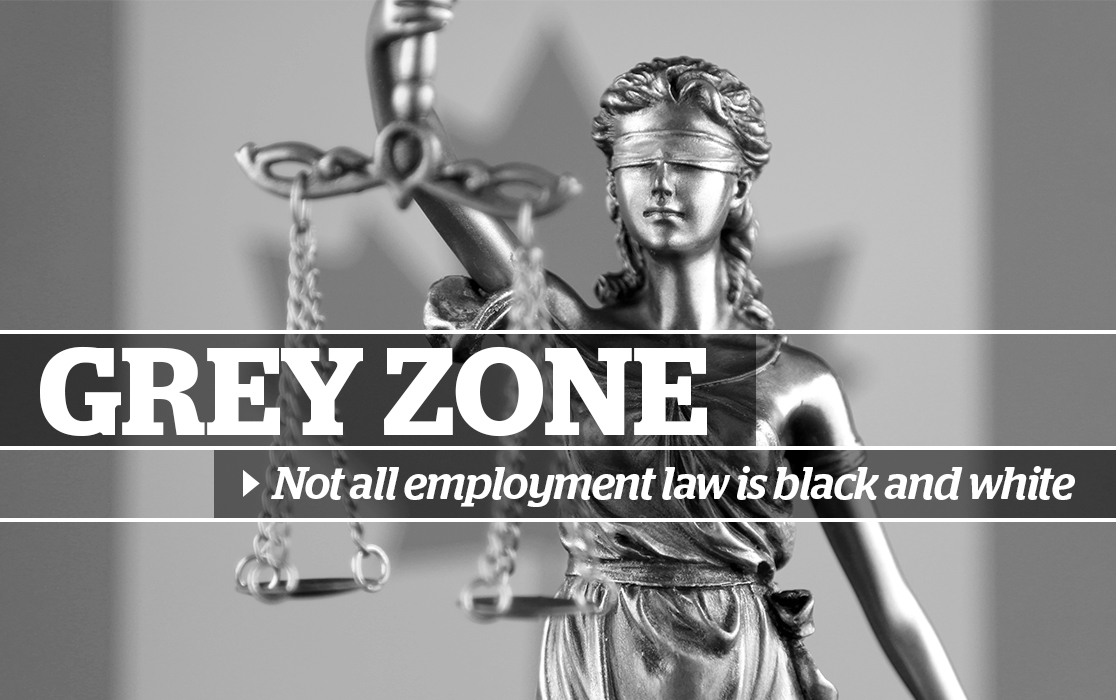

Columns/Blogs
Features
Job Cuts
Legal
Workplace Legislation
Navigating bad-faith layoffs in the COVID-19 era
By John Hyde

EDITOR’S NOTE: ‘Grey Zone: Not all employment law is black and white’ is a new weekly series, in partnership with John Hyde of Hyde HR Law in Toronto. This series will take a deeper look at issues in which senior workplace leaders and HR professionals need to consider legal implications.
COVID-19 has changed the rules of the employment relationship, leading to countless legal questions, none of which have a black and white answer.
To start us off, governments have enacted emergency legislation to permit temporary layoffs at a scale never before seen.
The move was a welcome sigh of relief for many employers facing looming and impossible termination commitments to employees who simply had no work to perform as a result of the pandemic.
Millions of Canadians were accordingly placed on “temporary layoffs” and their employment hung in stasis.
Eventually, indecision must come to an end as judgment day arrives for these temporarily laid-off employees.
Employers will need to determine their employees’ fate and decide if they will be recalled to work or deemed to have been terminated in the eyes of the law.
In the event employees are terminated, many employers will be forced to address the elephant in the room: was the layoff really due to COVID-19 or was it something else?
Employees convinced it was “something else” will surely allege that their employers had no genuine intention to recall them to work. They will argue their employers used the emergency legislation opportunistically and in bad faith to get rid of them or in the hopes that they would resign.
Employees could bootstrap these claims of “bad faith” to their claims for dismissal damages in an attempt to justify much larger severance packages.
Layoffs during COVID-19
The fundamental question will then be: Was the layoff really on account of the pandemic? In most cases, the legal answer is firmly in the grey zone.
For one, the emergency legislation permitting temporary layoffs due to COVID-19 does not provide much guidance for employers.
In Ontario, for example, the Infectious Disease Emergency Leave permits temporary layoffs for “reasons related to” COVID-19, with no further explanation of what those “reasons” may entail.
Then, there is the dynamic and evolving nature of the pandemic, including governmental responses and subsequent changes to the operations of a business.
Consider the example of a travel agency which, prior to the pandemic, had actively explored ways of modernizing its operations and increasing efficiencies. As a result of government orders preventing international travel during the pandemic, they are compelled to pivot their operations to rely on offshored labour and technology, which ends up being much more profitable, yet results in the layoffs and eventual terminations of many of its older travel agents.
Were the layoffs for “reasons related to” COVID-19, or something else?
Potentially costly consequences
Determining what are genuine reasons “related to COVID-19” will eventually be up to the courts to decide.
The risk to employers is that, if they are found to have used emergency legislation opportunistically, terminations can have costly consequences, particularly due to the recent Supreme Court decision outlining employers’ duties of good faith and honest performance at the time of termination.
There is also the reputational risk of such a finding by a court.
To mitigate this risk, employers should carefully consider how they communicate the reasons for a temporary layoff to employees.
This would include outlining the specific circumstances, operational restrictions, financial impacts on the business and, most prudently, the temporary and uncertain nature of the situation.
If the reasons for the termination are not convincingly temporary (for example, a permanent restructuring in operations), then employees will have a stronger case that there was no genuine intention to recall them to work.
Risks to delaying inevitable
Of course, if there is no genuine intention of a recall to work, companies may be better off addressing that reality right away, rather than delaying inevitable and potentially costly terminations down the road.
Once employees are placed on a temporary layoff, employers must continue to pay attention to how they manage the layoff as circumstances evolve.
Even if there was a genuine intention of a recall to work at the time of the layoff, employers who continue the layoff long after it became clear that there was no position for the employee to return to, expose themselves to claims of bad faith.
Ultimately, it is the employee’s burden to prove any allegations of bad faith conduct against an employer.
While companies cannot control the circumstances of the pandemic and the gamut of its harsh impacts, they can minimize the risks of mismanaging the crisis.
Companies who do so deftly will be best positioned to thrive during — and long after — the pandemic.
 John Hyde advises management on all aspects of employment and labour law, including representation before administrative tribunals, collective agreement negotiation, arbitrations, wrongful dismissal defence and human rights.
John Hyde advises management on all aspects of employment and labour law, including representation before administrative tribunals, collective agreement negotiation, arbitrations, wrongful dismissal defence and human rights.
Print this page